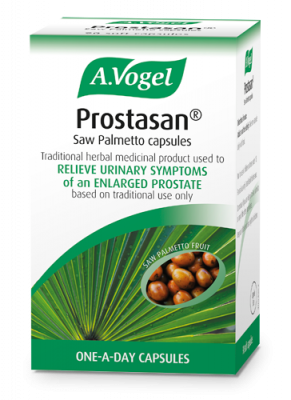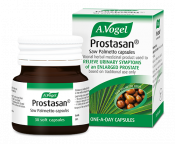Get clued up on common men’s health issues
With knowledge of some of the health problems men are prone to, you’ll be better able to spot the signs early. From here you can visit your doctor or make the necessary lifestyle changes that will help get symptoms under control.
1 - Cardiovascular problems
Although cardiovascular disease affects many women as well as men, research shows that it is a bigger problem for the latter half of the population. That’s because men experience the signs of cardiovascular disease around 10-20 years earlier than women whilst 75% of premature deaths resulting from coronary heart disease are accounted for by men.2
The reasons for this difference are complicated, though it may be partly to do with the fact that men have a greater body mass than women. According to figures released in 2015, 68% of men in England are obese or overweight compared to 58% of women.3 This increases the likelihood of men developing high blood pressure which, if left untreated, is a risk factor for cardiovascular problems.
Men are also more likely than women to smoke, they are likely to smoke more cigarettes per day and they turn to hand-rolled cigarettes more often than women too. According to the Men’s Health Forum, 22% of men reported smoking compared to 17% of women.4 Since smoking is another thing that can contribute to cardiovascular disease, we are beginning to see why levels are higher amongst men.
Alcohol is another thing than impacts male health more than it does women’s - men are more likely to drink alcohol and at a hazardous level too.5 Drinking excessively takes its toll on the body and can also contribute to high blood pressure and high cholesterol, as well as other problems such as liver damage, mental health problems and even infertility.6
2 - Falling testosterone levels
As we get older, male testosterone levels fall and, whilst many men will not develop any noticeable symptoms, others can experience fatigue, low libido, irritability, infertility and changes to the health of the skin.
The fall in testosterone levels is often called the male menopause, but is sometimes more accurately termed andropause or irritable male syndrome. After all, unlike the fall rapid fall in hormone levels that occur during the menopause, male testosterone levels fall at a very slow pace.
In addition to the symptoms listed above, falling testosterone levels can cause a reduction in muscle mass. This not only reduces physical strength, it also puts us more at risk of frailty, osteoporosis and bone fractures. Upping your vitamin D and calcium intake, however, can help to keep the bones strong and may contribute to normal muscle function in older men.
3 – Mental health
As I discussed in one of my previous blogs, 1 in 8 men suffers from a mental health problem. This shocking statistic has led some experts to claim a state of crisis.
Whilst depression, anxiety and stress are a few of the more well-known problems, personality disorders and schizophrenia are also common amongst men. If you are experiencing any of these problems, the charity MIND recommends that you talk to someone you trust, find a support group and read more about mental health issues in order to understand what’s going on better.
If you have an immediate problem though, contact the Samaritans where you can talk to someone in confidence.7
4 - Prostate health
Here at A.Vogel we often mention prostate problems in our blogs but only because it is such a common issue for men as they get older. About 1 in 3 men over the age of 50 have urinary symptoms8, the most common cause of which is an enlarged prostate, whilst there were 47,000 new cases of prostate cancer in the UK in 2015.9 If you want to know more about the prostate, what causes prostate problems and what you can do about it, I’d recommend taking a look at our enlarged prostate hub.
For now, however, bear in mind that the symptoms of both an enlarged prostate and prostate cancer can be similar. I have included some of these below and remember, if you have any concerns do visit your doctor (more on that later!).
- Having to go to the toilet at night
- Frequent urination
- Poor urine flow
- Dribbling urine
- The need to pass urine urgently
My Top Tip:You can read my blog ‘Why does Prostasan come out on top?’ for further information. "I have been taking A.Vogel Prostasan capsules for many years now and find they do make a difference. I have regular prostate checks and mine is not enlarged."
|
Have regular health check-ups
Now that we know a few health problems that men are more prone to, I need to express the importance of having regular health check-ups to detect and address these problems. When issues are detected early, treatments are more effective. This also reduces the risk of developing complications and ultimately saves lives.10
Despite this, however, men are less likely than women to visit the doctor.11 Many men are put off going to the doctors because they feel embarrassed or assume the problem will sort itself out. When it comes to visiting your GP though, there really are no excuses for putting it off! As I say, the sooner a problem is dealt with, the better the outcome is likely to be.

Watch your diet
A healthy diet can reduce the risk of high blood pressure, high cholesterol, type 2 diabetes, weight gain and coronary heart disease.12 Since cardiovascular disease is more often problematic for men, diet is definitely something we should be addressing.
This is all very well but what exactly makes a healthy diet?
- Lots of fresh fruit and vegetables – a selection of 5 or more a day should do it!
- Wholegrain bread, rice, cereal and pasta – increasing your consumption of soluble fibre can help to keep cholesterol levels under control. Dietary fibre helps to remove cholesterol build-up which, in turn, lowers the overall levels of cholesterol in the bloodstream
- Plenty of starchy foods like potatoes
- Some milk and dairy products (if possible)
- Avoid snacks high in sugar and salt like processed meat, crisps, ready meals and sweets. Did you know that men are more likely to eat too much salt, red meat and processed meat? They are also less likely to eat fruit, vegetables…14
- Fresh meat (or vegan/veggie alternatives such as tofu that will provide nutritional benefits like protein)
- Fresh fish – oily varieties contain omega 3 which are particularly good for cardiovascular disease
- Nuts, seeds and beans
- Limited alcohol, caffeine and fizzy drink intake
- Plenty of water
As well as influencing cardiovascular health, diet can also improve or worsen symptoms of an enlarged prostate. Good foods for an enlarged prostate include nuts, vegetables, pulses and citrus fruit whilst, where possible, those to avoid include red meat, eggs, poultry, processed foods, caffeine, spice and dairy.

Stay active
According to the Men’s Health Forum, only 67% of men meet government recommendations for physical activity and, on top of this participation in exercise declines with age.15 Not only does exercise bring benefits to mood and body weight, it also helps to reduce cholesterol levels. Since high cholesterol levels contribute to high blood pressure and cardiovascular problems, it is important to do it regularly.
Our Get Active Advisor Louise is better placed to offer advice on exercise than I am so I’d recommend you have a look at her hub for some tips on how to do more. I’ve included links to some helpful blogs below, but don’t forget that something as simple as walking short journeys and getting out in the fresh air at lunch time can help to increase your exercise levels.
- 6 of the best low impact sports – if you suffer from aches and pains or are wondering how to exercise more as you get older, this blog gives some helpful advice
- Bored of exercising? Try these unique sports – for those of you who don’t like popular sporting options such as going to the gym or going for a run, this piece provides information on more unusual workouts you could try
- 12 ways to exercise as a family – does family life mean you barely have the time to exercise? Read this blog to discover activities you can do together!

Talk!
Men are slower to report health problems than women and anecdotal evidence suggests they are much less likely to talk about any issues with family and friends too. There still seems to be this misconception that men should maintain a strong, unfaltering persona and this may be behind any lack of discussion.
More recently, however, there’s even been some suggestion of an improvement. Well-known television personalities such as Stephen Fry and Bill Turnbull have openly discussed being diagnosed with prostate cancer and following this, from April to July 2018, the NHS saw a 36% increase in patients receiving treatment for prostate cancer compared to 2017.16 Such open discussion seems to have spurred more men on to get checked, diagnosed and treated.
By talking through health issues we become more aware and knowledgeable. It provides a support network and we may even be encouraged to seek help when it is necessary, so what are you waiting for? If there’s an issue playing on your mind, let someone know!
References
1 https://www.menshealthforum.org.uk/key-data-mortality
2 Dawber, T.R.; Moore, F.E.; Mann, G. V. Coronary heart disease in the Framingham study. Am J Public Health Nations Health 1957, 47, 4-24.
4 https://www.menshealthforum.org.uk/top-five-tips
5 https://www.menshealthforum.org.uk/top-five-tips
6 https://www.nhs.uk/conditions/alcohol-misuse/risks/
8 https://prostatecanceruk.org/prostate-information/further-help/enlarged-prostate
10 https://www.nhs.uk/conditions/nhs-screening/
11 https://www.theguardian.com/society/2012/nov/04/men-failing-seek-nhs-help
12 https://www.bhf.org.uk/informationsupport/support/healthy-living/healthy-eating
13 Ho, H.V.; Sievenpiper, J.L.; Zurbau, A.;Blanco Meja, S.; Jovanovski, E.; Au-Yeung, F.; Jenkins, A.L.; Vuksan, V. The effect of oat beta-glucan on LDL-cholesterol, non-HDL-cholesterol and apoB for CVD risk reduction: a systematic review and meta-analysis of randomised-controlled trials. Br J Nutr2016, 116, 1369-1382. 10.1017/S000711451600341X.
14 https://www.menshealthforum.org.uk/top-five-tips





 Take Prostasan once a day with food to help ease the urinary symptoms of an enlarged prostate. Make sure your diagnosis is confirmed by your doctor first though, to rule out any other cause for your symptoms.
Take Prostasan once a day with food to help ease the urinary symptoms of an enlarged prostate. Make sure your diagnosis is confirmed by your doctor first though, to rule out any other cause for your symptoms. Looking for our products in a store near you?
Looking for our products in a store near you?

